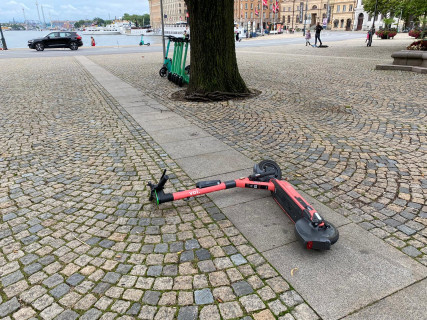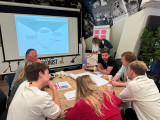Vanaf medio volgend jaar mogen elektrische deelsteps de Nederlandse weg op. Dat is leuk voor stepfanaten, maar gemeenten kijken met argusogen naar de ontwikkeling. Want in Europese steden zorgen de steps voor veel overlast. Welke middelen kan je als gemeente inzetten om rommelig geparkeerde stepjes en ongelukken te voorkomen?
De deelstep komt eraan! Geofencing, dropzones en ‘eigenaarschap’ moeten hem temmen.





